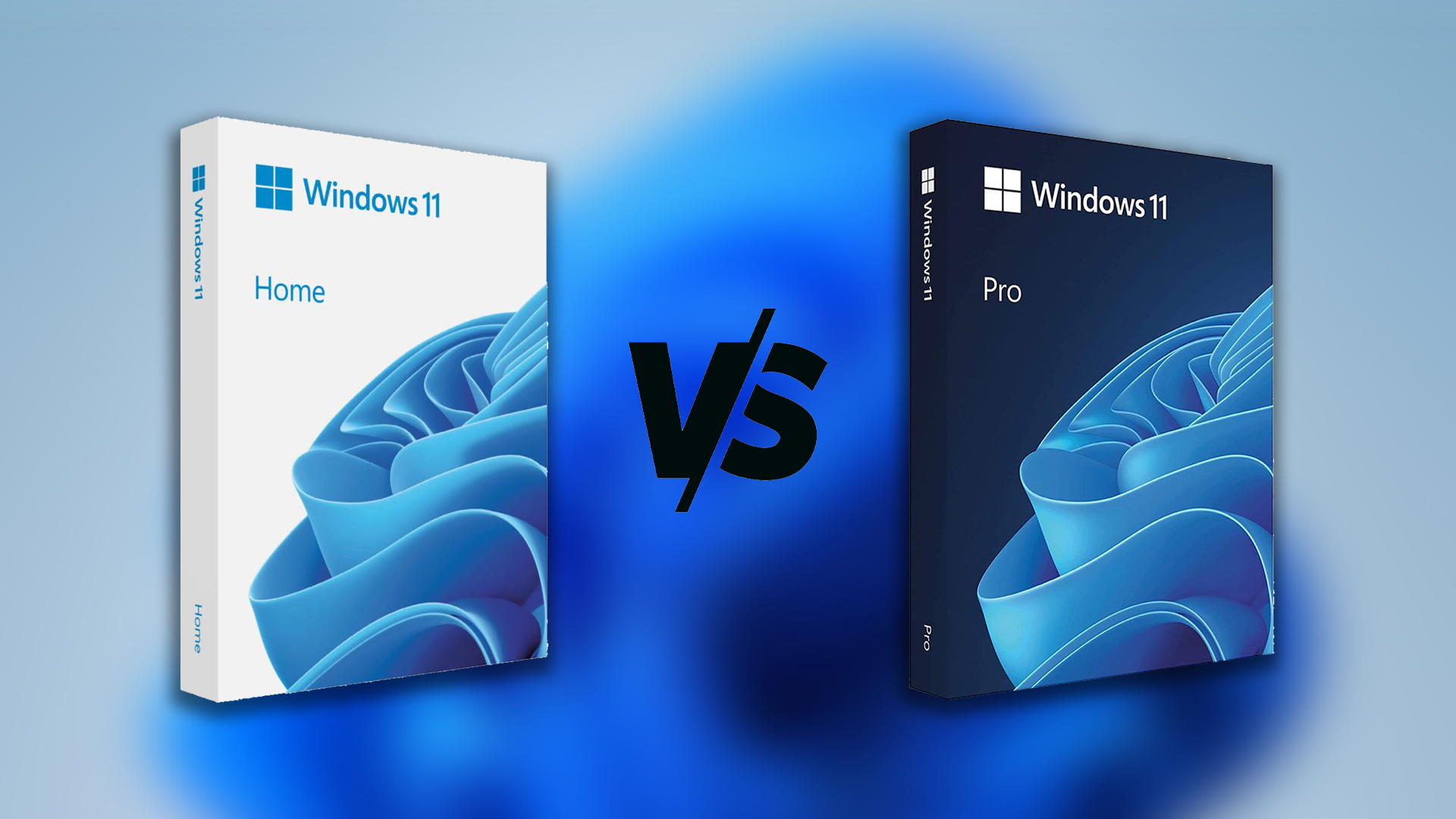In case you’re confused with the same, we have put together an in-depth comparison that takes a closer look at all the important aspects of Windows 11 Pro to see if it’s a worthy upgrade over Windows 11 Home. Let’s get started.
Windows 11 Home vs. Pro: Features
The most important aspect that separates Windows 11 Pro from the Home edition is the feature set. Here’s a list of all the features you might miss out on if you’re a Windows 11 Home user.
1. Improved Hardware Expansion
Though Windows 11 Home and Pro share the same system requirements, one of the most prominent differences is the Pro’s ability to offer a higher ceiling for hardware expansion. For starters, compared to Windows 11 Home, which only supports 1 CPU socket with 64 cores, Windows 11 Pro offers compatibility with 2 CPU sockets that can support 64-core CPUs each.
CPU cores aside, Windows 11 Pro offers support for up to a whopping 2TB of RAM versus 128GB on Windows 11 Home. Though this hardware ceiling won’t matter to a normal user, it is much appreciated by developers and computer engineers who might want to create a lot of virtual machines with plenty of RAM.
2. BitLocker Encryption
One of the most notable features exclusive to Windows 11 Pro is the BitLocker. A full disk encryption tool that can be used to encrypt your drives and disk volumes using 128-bit or 256-bit AES encryption and your computer’s TPM (Trusted Platform Module) chip.
If you deal with plenty of sensitive data on your computer, you can encrypt the data and password protect the data stored on your hard drive. That’ll make it extremely difficult for anyone to access that data without proper authorization.
3. Hyper-V Virtualization
If you’re an advanced user or a developer who requires the ability to create multiple virtual machines, Windows 11 Pro might serve you better. Thanks to Hyper-V, Microsoft’s built-in hypervisor that comes pre-installed with Windows 11 Pro, users can easily create high-performance virtual machines. This offers much better speed and reliability than third-party software such as Oracle’s VirtualBox or VMware’s VMware Workstation.
4. Windows Sandbox
A lightweight extension of the Hyper-V Virtualization, Windows Sandbox is another feature limited to Windows 11 Pro. It allows you to create an isolated instance of Windows inside the operating system to run applications and code that will not affect your actual Windows installation. Although Windows Sandbox is more limited than Hyper-V and allows you to use the current build of Windows 11, it loads up much faster. Besides, Windows Sandbox may come in handy if you want to test a sketchy app downloaded from the internet without risking your system. Also, you should note that Windows Sandbox resets every time you close it and won’t store any files or applications permanently.
5. Group Policy Editor
Yet another useful feature exclusive to Windows 11 Pro users is the Group Policy Editor. You can consider the Group Policy Editor an upgraded version of the registry editor, allowing you to configure many aspects of your computers or networks.
Besides, this feature allows system administrators in schools and organizations to configure startup programs, set password requirements, or restrict users from accessing certain parts and features of the operating system.
6. Remote Desktop Connection
A feature based on RDP (Remote Desktop Protocol), the Remote Desktop Connection feature in Windows 11 Pro lets you initiate a remote desktop connection to other Windows 11 Pro and Home PCs or clients while acting as a Host.
However, it isn’t an exclusive feature, and Windows 11 Home users can also get the same functionality using any third-party remote desktop software such as Anydesk.
7. Local Account
In case you’re unaware, you must have an active internet connection and a Microsoft account to install Windows 11 Home on your PC. Meanwhile, if you’re on Windows 11 Pro, you can create a local account, i.e., install Windows on your PC without an active internet connection or a Microsoft account.
You can use various workarounds to bypass this absurd requirement in Windows 11 Home. However, Windows 11 Pro is a much better option for privacy as you don’t have to create a separate Microsoft account to use Windows.
Windows 11 Home vs. Pro: Features and Differences Summarized
Here’s a summarised chart that lists all the features and differences between Windows 11 Home and Windows 11 Pro.
Windows 11 Home vs. Pro: Pricing
The Windows 11 Home version costs $139 for a copy in the US, while the Windows 11 Pro will cost you $199 for a single license. The price of each edition will change depending on your region and the deals you might get with it. The best way to save them is to buy a computer preloaded with a specific Windows 11 edition.
Windows 11 Home vs. Pro: Final Verdict
Now that you’ve looked at the features and differences that separate Windows 11 Home from Windows 11 Pro, you can pick the edition that suits your usage. Windows 11 Home may seem inferior on paper, but it still offers everything that any normal user would need daily. There’s no need to cash out your hard-earned money on Windows 11 Pro if you’re planning to install it on your gaming rig or home computer. However, suppose you’re a professional or a tech enthusiast who might benefit from the exclusive features and improved hardware capabilities of Windows 11 Pro. In that case, there isn’t any reason not to get it. The above article may contain affiliate links which help support Guiding Tech. However, it does not affect our editorial integrity. The content remains unbiased and authentic.












